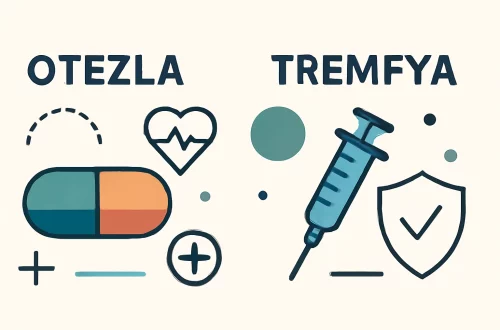
Understanding the Cost of a Vet Farm Call: What to Expect
Understanding the Cost of a Vet Farm Call: What to Expect
When it comes to caring for our beloved animals, whether they are pets or livestock, understanding the costs associated with veterinary services is essential. Veterinary care plays a critical role in maintaining the health and well-being of animals, and farm calls, where a vet visits your property to provide care, can be particularly convenient. However, many pet owners and farmers alike are left wondering about the costs involved in such services.
The expense of a vet farm call can vary widely based on several factors, including location, the type of service required, and the specific veterinary practice. Understanding these aspects can help you plan and budget for necessary veterinary care. Furthermore, knowing what to expect during a farm call can alleviate some of the stress associated with veterinary visits. By gaining insight into the nuances of veterinary costs, you can make informed decisions regarding your animals’ health and well-being.
In this article, we will explore the factors influencing the cost of a vet farm call, the typical services that may be provided during such visits, and tips for managing these expenses effectively. Whether you’re a seasoned farmer or a pet owner, being well-informed about veterinary services can lead to better care for your animals.
Factors Influencing the Cost of a Vet Farm Call
The cost of a vet farm call is influenced by a multitude of factors that can vary from one situation to another. One primary consideration is the geographical location of the veterinary practice. Urban areas often have higher costs of living, which can translate into more expensive veterinary services. Conversely, rural areas might offer more affordable options, but travel distances can also impact the overall cost.
Another significant factor is the type of animals being treated. Large animals, such as cattle or horses, may require different care protocols than smaller animals like goats or sheep. Additionally, the complexity of the issue being addressed can affect pricing. A routine check-up will typically cost less than emergency care or specialized treatments.
The time of day and day of the week can also play a role in determining costs. Many veterinarians charge extra for after-hours calls or services provided on weekends and holidays. Understanding these nuances can help you anticipate potential expenses when scheduling a farm call.
Additionally, the specific services rendered during the visit will also impact the overall cost. Basic examinations, vaccinations, and health certificates may have set fees, while more extensive procedures, such as surgeries or diagnostic testing, will increase the total bill. It’s essential to communicate openly with your veterinarian about your needs and any potential costs involved.
Common Services Provided During Farm Calls
Veterinarians offer a variety of services during farm calls, catering to the unique needs of each animal and their owner. One of the most common services is routine health examinations. During these exams, the vet will assess the overall health of the animals, check for any signs of illness, and provide vaccinations as necessary.
Another frequently requested service is reproductive health management, particularly for livestock. This can include breeding soundness examinations, pregnancy checks, and assistance during parturition. Ensuring the reproductive health of your animals is crucial for maintaining productivity and herd health.
Additionally, veterinarians often provide preventive care, such as deworming and nutritional counseling, during farm visits. Preventive measures can help avoid more serious health issues down the line, saving you money in the long run. Moreover, many vets can also assist with herd health management, advising on best practices for feeding, housing, and overall animal welfare.
Emergency care is another critical service that may necessitate a farm call. If an animal is injured or exhibiting signs of severe illness, a vet may need to visit the farm to provide immediate care. These visits are typically more expensive due to the urgency and the need for immediate intervention.
Overall, understanding the range of services a veterinarian can provide during a farm call can help you make the most of your time and investment. By engaging with your veterinarian and discussing your specific needs, you can ensure your animals receive comprehensive care.
Tips for Managing Veterinary Expenses
Managing veterinary expenses can be challenging, especially when unexpected health issues arise. However, there are several strategies you can implement to help control costs without compromising your animals’ health.
First and foremost, establishing a relationship with your veterinarian can lead to more personalized care and potentially better pricing. Many vets are willing to work with clients to create a care plan that fits within their budget. Open communication regarding financial constraints is crucial; don’t hesitate to discuss your concerns with your veterinarian.
Moreover, consider scheduling routine health check-ups and vaccinations as part of a preventive care plan. Regular visits can help identify health issues before they escalate into more significant problems, ultimately saving you money on emergency care. Many vets offer wellness plans that cover basic preventive services at a reduced cost.
You might also explore pet insurance or farm insurance options tailored for livestock. These policies can help offset some of the costs associated with veterinary care, providing peace of mind in case of emergencies. However, it’s essential to read the fine print and understand what is covered under these policies.
Additionally, being proactive about your animals’ health can lead to fewer vet visits. This includes maintaining proper nutrition, providing adequate housing, and ensuring regular exercise. A healthy animal is less likely to require frequent veterinary attention, which can significantly reduce overall expenses.
Finally, be aware of local resources or community programs that may offer assistance or reduced rates for veterinary services. Many areas have non-profit organizations dedicated to providing affordable care for animals, and utilizing these services can help alleviate financial burdens.
In conclusion, understanding the cost of a vet farm call and managing those expenses is vital for any animal owner. By considering various factors that influence costs, being aware of the services provided, and implementing effective financial strategies, you can ensure that your animals receive the care they need without breaking the bank.
**Disclaimer**: This article is not intended as medical advice. For any health-related issues concerning your animals, please consult a qualified veterinarian.




